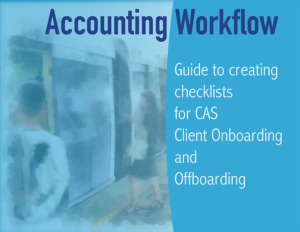KPIs (or Key Performance Indicators) are metrics you can use to track the growth and stability of your bookkeeping firm — and tracking the right ones is essential for firms aiming to scale. You can’t scale any business without first understanding what’s working and what isn’t.
Furthermore, being a bookkeeper means you’re good at numbers. You know all the important figures when it comes to your clients’ work — but what about your own? If your goal is to scale your bookkeeping firm, there are several key metrics that you should be keeping track of. Here are some of the ones we think you should be taking note of.
Retention Rate
Retention rate is just one metric you can use to measure client satisfaction. How well are you retaining your current clients? If you have high turnover, there may be some issues with how you are handling your client work. In order to scale your firm, it is essential for you to have satisfied clients who are willing to refer other businesses to you. A good retention rate means your firm is delivering good service; a bad retention rate means there may be areas of your client work, communication, and general service that need improvement before you can expect to see growth.
Monthly Recurring Revenue (MRR)
Your monthly recurring revenue can be calculated by adding your revenue from the previous month to your revenue from the current month, then subtracting any revenue lost through cancellations. MRR is a useful metric because it allows you to clearly see whether or not your firm is growing. If your MRR isn’t increasing or goes down more often than up, that’s a sure sign that changes need to be made if you’re serious about scaling.
Average Revenue Per Client (ARPC)
Scaling your bookkeeping firm is often also a process of nurturing existing client relationships to increase their profitability. Tracking your average revenue per client, or your ARPC, also helps you to see if your firm is evolving upwards. If your ARPC is too low, it may be because you have too few clients or because the clients you have are not the most profitable.
Team Satisfaction
Nothing would be possible without your amazing team — including scaling your business. Tracking employee happiness can help you understand how likely you are to retain existing staff and attract new talent to your firm as you grow. You can track satisfaction by asking your team members questions about their feelings towards their work and workplace. To make things easy, develop a rating system for them to use to rate things like overall satisfaction and the manageability of their workload.
As a bookkeeper, you know how important it is to have your facts and figures straight AND how useful the right numbers can be when making business decisions. Now, it’s time to stretch that logic to your own practice!











